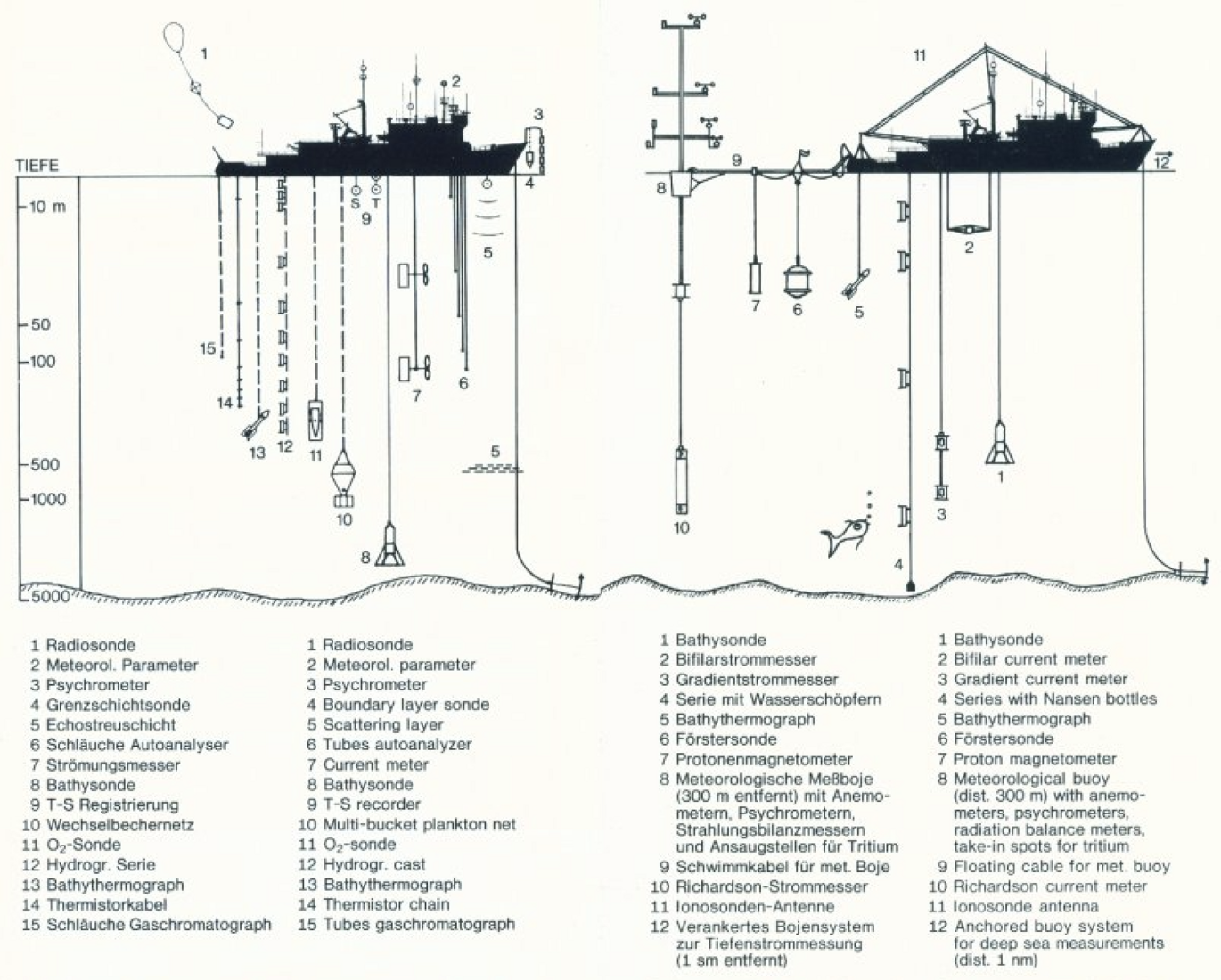Friday Lecture – Bernhard Siegert: MediaNatures of Seawater – the Making of a Digitized Ocean
Join us for this Friday lecture with professor Bernhard Siegert (Bauhaus University, Weimar) who will explore the datafication of oceans, a topic that is also part of his on-going project “The New Real – Past, Present, and Future of Computation and the Ecologization of Cultural Techniques”. This event is part of Friday Lectures by Dept. Digital Design and Information Studies and all are welcome.

Friday Lecture – Bernhard Siegert: MediaNatures of Seawater – the Making of a Digitized Ocean
Join us for this Friday lecture with professor Bernhard Siegert (Bauhaus University, Weimar) who will explore the datafication of oceans, a topic that is also part of his on-going project “The New Real – Past, Present, and Future of Computation and the Ecologization of Cultural Techniques”. This event is part of Friday Lectures by Dept. Digital Design and Information Studies and all are welcome.
Oplysninger om arrangementet
TIDSPUNKT
Fredag 17. marts 2023, kl. 14:15 - 16:00
STED
Aarhus University, Peter Bøgh Auditorium, Finlandsgade 21, 8200 Aarhus N
Foto: "Meteor II Geräteeinsatz”
Abstract:
MediaNatures of Seawater – The Making of a Digitized Ocean
The main thesis of this talk is a specific implementation of the general thesis that “without ships there would be no ocean” (John Durham Peters). The implementation runs as follows: There is no seawater as such; there are only cultural techniques of extraction. Seawater is a “medianature” (Jussi Parikka), the ontology of which is determined by the applied method of extraction (of whatever: data, micro-organisms, or oil) – which also implies that seawater has to be historicized.
The talk will draw on three different technologies, and the media-historical, political, and epistemological situations they represent, each of which went (or still goes) by the name of “Argo”. It thereby aims at carving out the contours of a historical change of paradigms in oceanographic research: Since the 1990ies at the latest, the ontology of seawater is no longer of a physical nature, which becomes evident by representations of analog signals, but of a microbial or genomic nature, which becomes evident by sequences of amino acids stored in databases. The change from the physical to the biological paradigm thus is at the same time – and as the same event – a change from the analog to the digital. And since this change of paradigms the meaning of data extraction platforms has assumed a clear katechontic horizon.
Bio
Bernhard Siegert is Gerd-Bucerius Professor for the History and Theory of Cultural Techniques, Bauhaus Universität Weimar. From 2008 to 2020 he was co-director of the International Research Center for Cultural Techniques and Media Philosophy at Weimar (IKKM). Since 2021 he leads the project “The New Real – Past, Present, and Future of Computation and the Ecologization of Cultural Techniques” funded by the NOMIS Foundation.
Siegert was Max Kade Professor at the University of California at Santa Barbara (2008 and 2011), Phyllis and Gerald LeBoff Visiting Scholar at the Department for Media, Culture, and Communication at New York University (2015), International Visiting Research Scholar at the Peter Wall Institute for Advanced Studies, University of British Columbia, Canada (2016), Eberhard Berent Visiting Professor and Distinguished Writer in Residence at the Department of German, New York University (2017), Guest Lecturer at the Department of Culture and Aesthetics, Stockholm University (2018), and Visiting Professor at the Department of Visual and Environmental Studies at Harvard University (2019).
His many publications have drawn upon disciplines including the histories of science and technologies, art, literature, data processing and bureaucracies to deconstruct supposedly ontologically or naturally given entities and ideas in terms of a history of mediums and cultural techniques. Translations in English of his work on media theory and history have appeared as Relays: Literature as an Epoch of the Postal System (Stanford University Press, 1999) and, more recently, Cultural Techniques: Grids, Filters, Doors, and Other Articulations of the Real(Fordham University Press, 2015)
